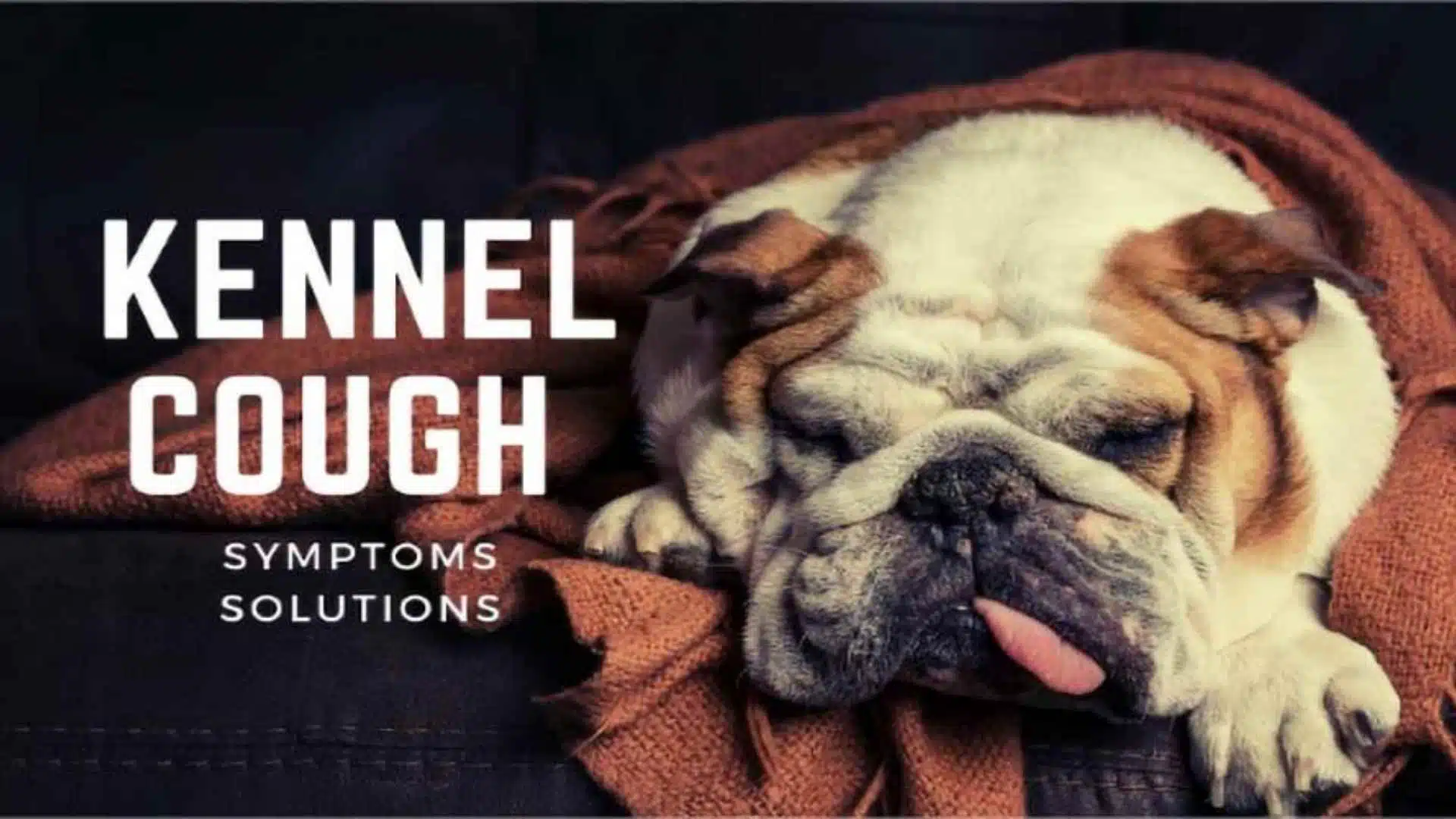

Kennel cough is a highly infectious respiratory syndrome in dogs also known as canine infectious tracheobronchitis. It can be caused by a variety of pathogens including bacteria and viruses. Your dog can become infected with these pathogens from having direct exposure to other dogs in doggy daycare, dog parks, or boarding facilities. Most often it will cause a persistent dry hacking cough.
There are many different bacterial and viral organisms that can cause kennel cough. Most of the time, your veterinarian will not be able to tell the exact cause of the kennel cough unless they do special testing. The good news is that, in most cases, your pup will get better with supportive care and medications prescribed by your veterinarian. The most common pathogens that cause kennel cough are:
The most common symptoms of kennel cough include a dry hacking or honking cough. As a veterinarian, anytime I hear a young healthy dog coughing that has recently been to the boarding facility or doggy daycare, I put kennel cough high on the list. Here is a complete list of kennel cough symptoms according to the AKC:
The classic kennel cough sound is a deep honking cough. It kind of sounds like a goose honking. The cough may get worse as your dog is exercising or if they get excited. Keep in mind that kennel cough can not be diagnosed by sound alone. There are many different causes for coughs, so anytime your pet has a cough, it is a good idea to get them checked out by your veterinarian.
If you are interested in hearing what it sounds like for a dog to have kennel cough, check out this YouTube video. This cute beagle has a honking dry cough that may be suggestive of kennel cough. You can also hear him gagging and clearing his throat which is another one of the kennel cough symptoms.

If you suspect your dog has kennel cough, I recommend calling your veterinarian and scheduling an appointment. Your vet will ask you several questions about your dog and do a physical examination. They may recommend an x-ray of your dog’s chest just to be sure there is no sign of pneumonia or heart issues. Once they have diagnosed kennel cough, your veterinarian will likely prescribe some type of dog cough medicine. Your veterinarian may also recommend kennel cough antibiotics. As your dog is recovering from kennel cough, make sure they are nice and cozy. This machine-washable calming pet bed will provide an excellent recovery area for your dog.
Elevate your dog’s well-being with our carefully selected range of top supplements designed to fortify and enhance their immune system. Our curated collection includes immune-boosting ingredients like vitamins C and E, antioxidants, and probiotics, all aimed at supporting a robust defense against illnesses.
I typically don’t recommend treating kennel cough at home. There are many different causes of dog coughing. You will not know for sure that your dog has kennel cough based on symptoms alone. You are putting your dog at high risk if you delay seeking veterinary care because there are other serious conditions like heart failure that can cause dog coughing that you may be missing. Don’t delay seeking veterinary care because visiting the vet sooner rather than later will usually save you money in the long run.
Kennel’s cough is highly contagious. It will be most contagious when your dog is showing the worst symptoms. That being said, they could shed the pathogens at low levels for several days after their kennel cough symptoms disappear. To be safe, I recommend waiting a full week after the kennel cough symptoms have resolved to go back to a boarding or grooming facility. This will ensure that your dog will not infect other dogs.
The duration of kennel cough symptoms will depend on how quickly you seek veterinary care. If you visit your veterinarian as soon as you hear your dog coughing, they can prescribe medications that can help improve your dog’s symptoms. Your dog may only have symptoms for 2 to 7 days. If you do not get treatment for your dog, they may have kennel cough symptoms for 2 to 3 weeks.

There are a few measures that you can take to decrease your dog’s risk of kennel cough. The most obvious way to prevent kennel cough is to avoid exposure to other dogs outside your household. If you avoid boarding facilities and opt instead for an in-home pet sitter, this could reduce your dog’s risk of kennel cough. In addition, avoiding dog parks and doggy daycare where there is a high density of dogs may reduce your dog’s risk of developing kennel cough symptoms. The bordetella vaccine can protect against certain infectious agents that cause kennel cough. This kennel cough vaccine will not protect against every bacteria and virus that causes kennel cough, but it can help reduce your dog’s risk of developing kennel cough.
Kennel cough is a common infectious disease seen in dogs. Kennel cough symptoms can include a honking cough, retching, and gagging. If your dog has a cough, it would be a good idea to schedule an appointment with your veterinarian so they provide kennel cough treatment including a dog cough medicine and kennel cough antibiotics.
Most of us train our dogs when they are puppies to jump up on furniture. We think it’s harmless (and easier than always lifting them), but for dogs, couches and beds are very high compared to the size of their bodies.
Every time they jump it compresses their back and applies enormous force to their joints.
It’s no wonder that an incredible 80% of dogs experience arthritis or joint pain by only 7 years old.
Luckily, there is a vet-recommended solution.
It’s the PawRamp by Alpha Paw. An adjustable ramp that allows dogs to safely get on and off couches and beds. PawRamp makes joining you in bed or on the couch effortless and fun.
As a bonus, you can use code SAVE35 to get $35 off the PawRamp today.

The medical, nutritional, or behavioral advice we provide is intended for informational and educational purposes only. Our editorial content is not a substitute for formal or personalized medical advice from a veterinary professional. Only board-certified veterinary specialists who have examined your pet should diagnose medical conditions, provide personalized treatment, or prescribe appropriate medication. For questions regarding your pet’s health, or if your pet is exhibiting signs of illness, injury, or distress, contact your veterinarian immediately. Never disregard professional medical advice or delay in seeking it because of something you have read on our site.